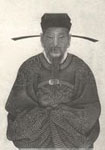“那得青烟穿御柳”的意思及全诗出处和翻译赏析
诗词类型:
《清明日试新火作牡丹会》范成大 翻译、赏析和诗意
这首诗词是范成大的作品,题为《清明日试新火作牡丹会》。以下是对这首诗词的中文译文、诗意和赏析:
清明日试新火作牡丹会,
On the day of Qingming, I lit a new fire to celebrate the peony gathering,
朝代:宋代,作者:范成大,内容:再钻巴火尚浮家,
Dynasty: Song Dynasty, Author: Fan Chengda, Content: The fire is burning high in my humble house once again.
去国年多客路赊。
Having spent many years away from my homeland, I am now a debtor on this foreign road.
那得青烟穿御柳,
How could the green smoke penetrate the imperial willows?
且将银烛照京花。
For now, let the silver candle illuminate the flowers of the capital.
香鬟半醉斜枝重,
With fragrant hairpin slightly tipsy, the slanting branch becomes heavier,
病眼全昏瘴雾遮。
My eyes, clouded by illness, are obscured by the miasma.
锦地绣天春不散,
The embroidered spring on this brocade land will never fade away,
任教檐雨卷泥沙。
As raindrops from the eaves roll with mud and sand.
这首诗词表达了诗人范成大在清明节时的感慨和思考。他身在他乡,多年离乡背井,心中充满了对故土的思念和对生活境遇的疑惑。他点燃新的篝火,希望通过这个简单的仪式来表达对故乡的怀念和对新生活的期望。
诗中提到了青烟穿御柳,意味着诗人希望心中的思念能够穿越时空,传达到故乡的人们心中。而银烛照京花,则表达了诗人对京城繁华生活的向往和对美好事物的追求。
诗的后半部分,诗人描述了自己的身体不适和眼睛的模糊。这些描写可以理解为诗人在外流浪的艰辛和他内心的困惑与痛苦。最后两句诗以锦地绣天和檐雨卷泥沙来形容春天的景象,表达了诗人对美好的追求和对逆境的坚持。
总的来说,这首诗词通过对清明节的描绘和自己的体验,表达了诗人对故乡的思念、对新生活的期待,以及面对困境时的坚持和追求美好的精神。
《清明日试新火作牡丹会》范成大 拼音读音参考
qīng míng rì shì xīn huǒ zuò mǔ dān huì
清明日试新火作牡丹会
zài zuān bā huǒ shàng fú jiā, qù guó nián duō kè lù shē.
再钻巴火尚浮家,去国年多客路赊。
nà de qīng yān chuān yù liǔ, qiě jiāng yín zhú zhào jīng huā.
那得青烟穿御柳,且将银烛照京花。
xiāng huán bàn zuì xié zhī zhòng, bìng yǎn quán hūn zhàng wù zhē.
香鬟半醉斜枝重,病眼全昏瘴雾遮。
jǐn dì xiù tiān chūn bù sàn, rèn jiào yán yǔ juǎn ní shā.
锦地绣天春不散,任教檐雨卷泥沙。
“那得青烟穿御柳”平仄韵脚
拼音:nà de qīng yān chuān yù liǔ
平仄:仄平平平仄仄
韵脚:(仄韵) 上声二十五有
